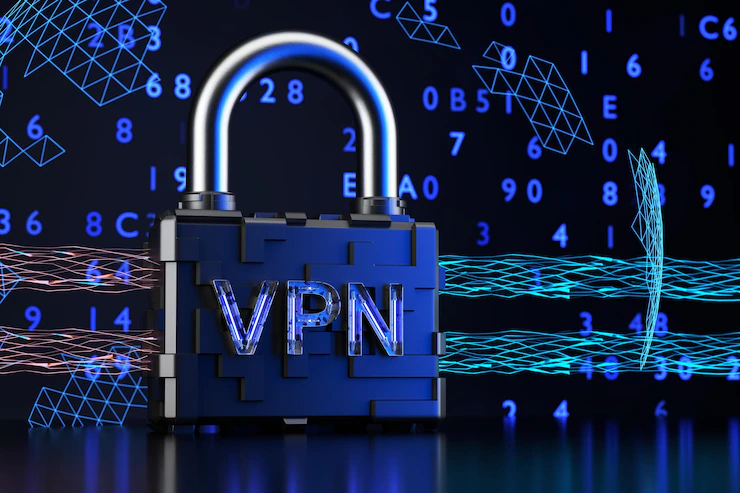Internet Censorship In India: Why VPNs Are Essential For Privacy
5 Mins Read
Published on: 18 October 2023
Last Updated on: 16 July 2024

toc impalement
When we hear about mass surveillance or violation of privacy, countries like China or Iran jump to our minds. However, freedom continues to decline in India fast. The country’s streets are loaded with security cameras, but the surveillance has also penetrated the local web to the core. Today, Indians face difficulties retaining online privacy.
The subcontinent is one of the world’s largest online populations. Though the growth has been rapid over the years, it brings about abysmal restrictions for individuals and businesses alike. Internet censorship became an ordeal every Indian must face to navigate the web space privately. Hence, cybersecurity tools have boomed in popularity.
In this article, we’ll overview the internet censorship situation in India and how a VPN may help you preserve a degree of online privacy.
Current Digital Climate In India
The exponential growth of internet technology in India brought opportunities for the country to exploit the web space for business and other goals. Likewise, regular users could tap into unrestricted communication worldwide, entertainment forms like streaming, gaming, etc. Sadly, no more as internet censorship has taken over.
The Information Technology Act of 2000 is central to India’s regulations and continuous amendments to web censorship. Because of this, the government can legally restrict the use of the internet, monitor online user behavior without their consent, regulate online enterprises, and more. The Aadhaar System, a 12-digit unique identity number, is a prime example of India’s mass surveillance.
Take internet shutdowns, which typically are enforced during civil unrest or other emergencies. According to Access Now, India was the greatest internet shutdown offender worldwide in 2022. Though the government has faced criticism from its civilians and other countries, India doesn’t show signs of budging with the extreme expressions of censorship anytime soon.
The lack of freedom doesn’t end there. Indians are under constant surveillance online, their actions monitored closely, web content restricted severely, and freedom of speech is becoming a thing of the past. Consequently, the use of VPNs for India and other cybersecurity tools has increased dramatically for dealing with restrictions and online monitoring.
The Relevance Of Cybersecurity Tools For Indians
Usually, individuals and enterprises use cybersecurity to protect themselves from potential hackers and other nefarious parties. However, the use of it may differ in India. Sure, the country isn’t exempt from malware, like ransomware or malvertising. Businesses need to protect themselves from cyber threats.
On the other hand, most Indians and their institutions turn to cybersecurity tools to liberate their daily lives from constant monitoring and restrictions. Quite a few tools can secure your online privacy. But a VPN (Virtual Private Network) is the most common mid-range solution. Whether you’re a business owner or a regular web user, this technology can revolutionize your online experience.
The software operates as a safe bridge for your data travel. Once you connect to a VPN server, your whole web traffic is encrypted fully. That means that not even your ISP (Internet Service Provider) can see what you’re doing online. Most modern VPNs employ AES-256 encryption, which banks and militaries use for their operations.
Data protection is the most attractive attribute of a VPN service to Indians. According to The Economic Times, India had over 270 million VPN users in 2022. Though several reputable providers removed Indian servers after the new regulations introduced on 27 June 2022, users are welcome to use foreign servers.
How Does A VPN Help Indians Battle Regulations
The mechanism behind the technology is simple: you connect to a server in a chosen location. Once done, you get a foreign IP address, and your internet traffic is concealed from prying eyes. However, such a simple tool benefits in several ways that are to be considered.
Evasion Of Surveillance
Thanks to the industry-standard AES-256 encryption, you can navigate the web without being monitored. In India, the government actively surveils its residents, building a profile of each citizen. A VPN’s IP address masking helps you avoid this. However, it’s best to rely on a VPN service with obfuscation as part of the suite for an added layer of encryption.
It’s the most pressing matter for Indians and enterprises alike. After all, constant surveillance has already caused massive dissatisfaction among Indian citizens. Since their voice isn’t heard, they opt for services like VPNs. At the end of the day, they help protect you from Orwellian regimes.
Bypassing Internet Censorship
Geographical and other kinds of restrictions are prevalent in India. For instance, Bollywood, a powerful industry in the subcontinent, achieved prohibition of Internet Archive. It limits users who want to enjoy their hobbies and business or other institutions who might need to access websites for research.
Since a VPN service usually offers solid global coverage, it allows users to outmaneuver blocked access. Whether you wish to access a streaming hub, a research website, or evaluate the market in full scope, a VPN gives you a secret free pass. In short, you can bypass restrictions much more quickly.
International Market Access
A VPN may help businesses to conduct market research, advertise their products, and maintain their online presence. Typically, it’s the geographical barriers standing in the way that the service is extraordinarily at dealing with. With it in tow, your business has more opportunities to expand online. On top of that, your enterprise data remains hidden from the ever-vigilant eyes.
Regaining Freedom Of Speech
The Indian Constitution, the Anti-Blasphemy Law, the Criminal Defamation Law, and the Sedition Law continue to limit freedom of speech. With no prognosis of improvement in sight, users seek online means to express their opinions globally. A VPN is a perfect subordinate in such endeavors.
For example, Iranian journalists are known to use VPNs to inform the world of the events in the country. While the situation isn’t as extreme in India, people must select their words publicly. A VPN’s data protection allows Indians to express their minds and feelings online without fearing repercussions from the government.
Conclusion
The situation in India is slowly starting to fit the Orwellian reality that some countries are facing on an extreme level. Mass surveillance and internet censorship limit Indian citizens’ right to privacy and freedom of speech. Meanwhile, businesses face the challenges of maintaining an online presence and expanding their markets.
Fortunately, cybersecurity tools actively help people in such unfortunate situations. One of the most common tools is a VPN. Thanks to ease of use and broad availability, the technology continues to help millions of Indians reclaim their privacy. If you find the claws of the government impeding your freedom, you can fight back against it with reliable privacy tools.
Read Also:


















Comments Are Closed For This Article